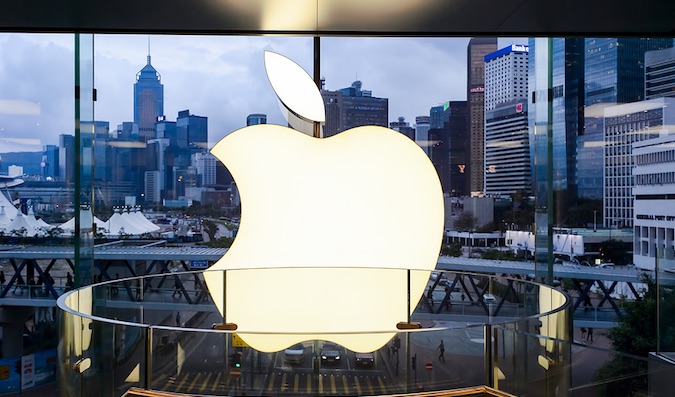
Apple Says Expert Panel Should Take Up Encryption Issue
Apple said Monday it would accept having a panel of experts consider access to encrypted devices if US authorities drop efforts to force it to help break into the iPhone of a California attacker.
In a statement posted on its website, Apple reaffirmed its opposition to the US government’s effort to compel it to provide technical assistance to the FBI investigation of the San Bernardino attacks, but also suggested a compromise in the highly charged legal battle.
“We feel the best way forward would be for the government to withdraw its demands under the All Writs Act and, as some in Congress have proposed, form a commission or other panel of experts on intelligence, technology and civil liberties to discuss the implications for law enforcement, national security, privacy and personal freedoms,” the statement said.
Related: Industry Reactions to FBI’s Request for iPhone Backdoor
“Apple would gladly participate in such an effort.”
Apple’s statement — the latest volley in an escalating legal and public relations battle over encryption — said enforcing the court order “would set a legal precedent that would expand the powers of the government and we simply don’t know where that would lead us.”
The statement said it was “possible to create an entirely new operating system to undermine our security features… But it’s something we believe is too dangerous to do.”
FBI misstep?
Apple also said it has offered advice to the FBI but that investigators made an error which made it more difficult to access the iPhone data through the backup known as the iCloud.
“We learned that while the attacker’s iPhone was in FBI custody the Apple ID password associated with the phone was changed,” the statement said.
“Changing this password meant the phone could no longer access iCloud services.”
In a memo to Apple employees also released Monday, chief executive Tim Cook said the tech giant was not willing to roll back security features included in its new phones and software, which allow only the user to unlock the devices.
At the same time, Cook said Apple wants to help authorities.
“Apple is a uniquely American company,” he said in the memo. “It does not feel right to be on the opposite side of the government in a case centering on the freedoms and liberties that government is meant to protect.”
The Apple response came just hours after FBI Director James Comey explained the government’s position, saying it was about “the victims and justice” in the attack that killed 14 people in California, carried out by a couple believed to have been inspired by the Islamic State group.
“We don’t want to break anyone’s encryption or set a master key loose on the land,” Comey said in a posting that appeared on the Lawfare blog and on the FBI website.
“The San Bernardino litigation isn’t about trying to set a precedent or send any kind of message,” Comey said.
“It is about the victims and justice.”
Magic wand
Battle lines have been drawn in the case, with many tech firms and encryption experts backing Apple, and law enforcement supporters siding with the government.
The issue has even spilled into the presidential campaign, with Republican frontrunner Donald Trump calling for a boycott of Apple until the tech giant complies with US government demands.
A poll taken from February 18-21 by Pew Research Center found 51 percent of Americans support the efforts to require Apple to unlock the phone, to 38 percent supporting the iPhone maker.
Facebook chief Mark Zuckerberg meanwhile offered support to Apple.
“I don’t think that requiring back doors to encryption is either going to be an effective thing to increase security or is really the right thing to do. We are pretty sympathetic to Tim and Apple,” he said at a telecom event in Barcelona.
Apple and its supporters fear any tool developed by the company could be used repeatedly and eventually fall into the hands of hackers or authoritarian governments.
“The FBI wants this magic wand, in the form of judicial orders and a bespoke Apple engineering process, to gain backdoor access to any phone in their possession,” said Rice University computer scientist Dan Wallach.
“If the FBI can go to Apple to demand this, then so can any other government.”
Related: Industry Reactions to FBI’s Request for iPhone Backdoor














